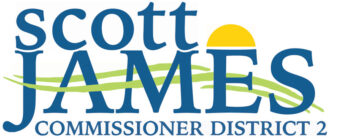More than a year’s worth of work to reduce duplication, create greater efficiency and bring more clarity to the Weld County Oil and Gas Location Assessment (WOGLA) process culminated with the board of commissioners unanimously approving changes to Chapter 21 of the Weld County Code following a three-reading process. The changes, approved last Wednesday, will go into effect on July 5, 2024.
“Oil and gas development is a prime economic driver in Weld County, and it’s important that our permitting process evolves to encourage development while continuing to ensure the health, safety and welfare of the public and the environment,” said Kevin Ross, Weld County Commissioner Chair. “We’ve seen positive results with our WOGLA process since assuming 1041 authority over oil and gas permitting in 2019, and we believe those results will continue with these changes.”
Some of the changes involve simply updating outdated language, such as replacing the Colorado Oil and Gas Conservation Commission with the Colorado Energy and Carbon Management Commission. More substantive changes include clarifying the approval process for sites looking to be powered by solar energy facilities up to 10 acres in size and outlining submittal requirements for comprehensive development plans (CDPs). A CDP can be valid for up to 10 years, as opposed to three years for a regular WOGLA.
Jason Maxey, Director of the Weld County Oil and Gas Energy Department (OGED), said that while solar and CDPs were part of the code previously, clarifying the application requirements through these code changes should bring greater efficiency to the permitting process and assist with planning efforts as the county continues to grow.
“Clarifying items such as solar facilities and CDP submittal requirements will make the review and permit approval process more efficient and eliminate the back-and-forth conversations we currently have,” Maxey said. “CDPs allow long-term energy development in an area and assist with overall planning efforts for multiple other Weld County departments.”
The code changes also give the OGED the ability to review permitting for Class II, or injection wells, which were previously under the Department of Planning and Zoning, and Class VI (carbon sequestration) wells.


